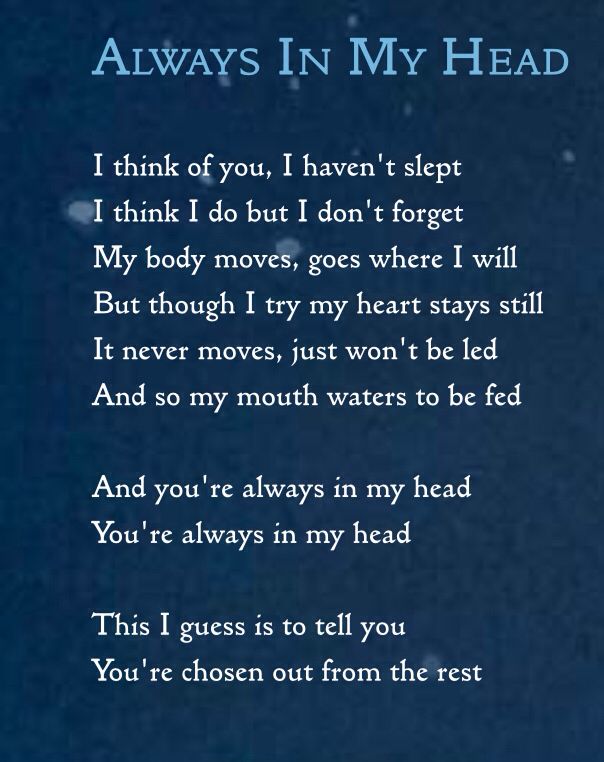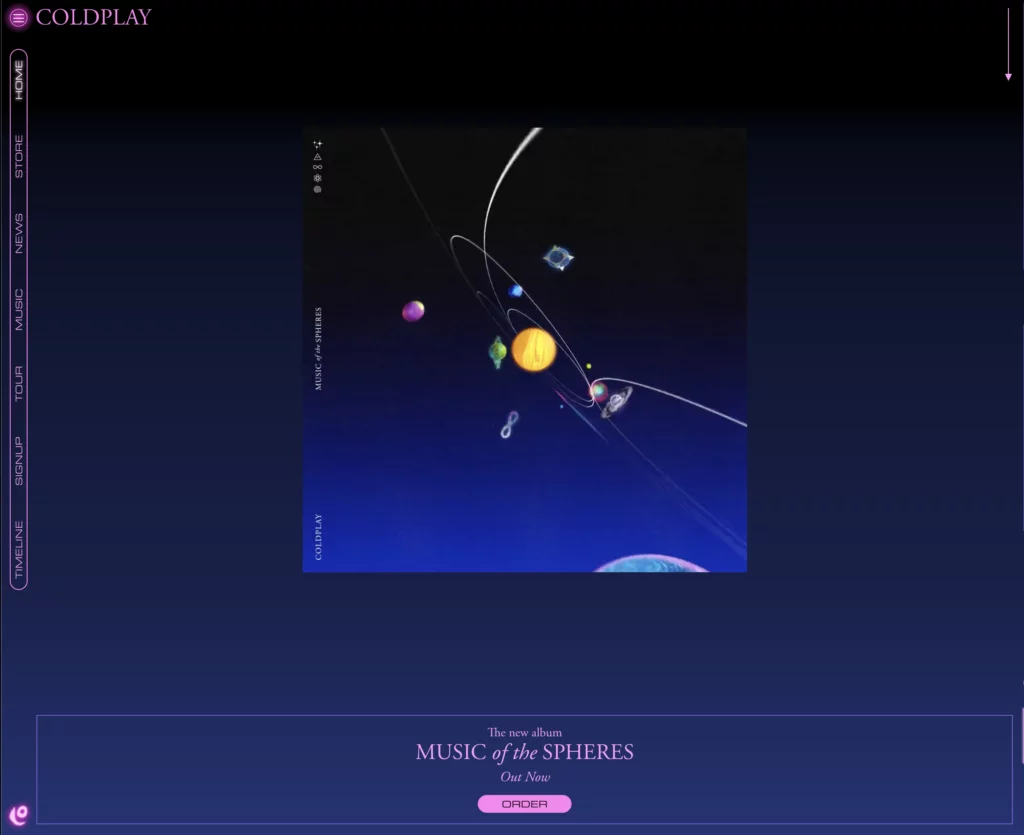Coldplay, the iconic British band, is known for its emotionally evocative lyrics, and “Always in My Head” is no exception. This haunting track from their album Ghost Stories has captivated listeners with its introspective and melancholic tone.
The lyrics of “Always in My Head” delve into themes of longing, nostalgia, and the complexities of relationships. Coldplay’s poetic imagery and Chris Martin’s soulful vocals convey a sense of yearning and introspection that resonate deeply with fans.
In this blog, we will dissect the profound meaning behind the lyrics of Coldplay’s “Always in My Head,” exploring the layers of emotion and personal reflection embedded within this deeply personal song.

Introduction to Coldplay’s “Always in My Head” Lyrics
Coldplay’s song “Always in My Head” is a poignant track from their sixth studio album, “Ghost Stories,” released in 2014. The lyrics delve into themes of love, longing, and the haunting presence of a past relationship that lingers in one’s thoughts.
Exploring the Emotional Depth
The lyrics of “Always in My Head” eloquently portray the emotional turmoil of reminiscing about a lost love. The haunting melodies and evocative vocals create a sense of melancholy and introspection.
Analyzing the Melancholic Tone
Coldplay’s poetic imagery and heartfelt delivery in this song resonate with listeners, capturing the bittersweet essence of memories that refuse to fade away.

Background and Inspiration Behind the Song
Coldplay’s “Always in My Head” is a track from their 2014 album, “Ghost Stories.” The song reflects lead singer Chris Martin’s emotional journey post-divorce with Gwyneth Paltrow. The lyrics speak of love, loss, and longing, resonating with listeners profoundly and personally. Martin’s introspective and heartfelt approach to songwriting has always been a hallmark of Coldplay’s music, and “Always in My Head” is no exception.
Emotional Turmoil
The lyrics of “Always in My Head” delve into the emotional turmoil of a relationship falling apart and the lingering thoughts that haunt the mind. The melancholy melody and poignant vocals create a haunting atmosphere that captures the pain and vulnerability of heartbreak.
Musical Composition
The song’s ethereal soundscapes and minimalist production enhance its emotional impact. Coldplay’s signature blend of piano and atmospheric synths creates a melancholic backdrop for Martin’s emotive vocals to shine through. The music’s haunting beauty complements the lyrics, evoking a sense of longing and nostalgia.
Analyzing the lyrics and themes
When delving into the meaning behind Coldplay’s “Always in My Head” lyrics, we uncover a tapestry of emotions and reflections. The song, released in the year of our keywords, encapsulates themes of love, longing, and vulnerability.
Exploring the Emotions
The lyrics convey deep emotions of yearning and attachment with powerful lines that resonate with listeners. The melancholic undertones imbue the song with a sense of nostalgia.
Themes of Connection
Themes of connection and separation are prevalent, reflecting the universal human experience of longing for someone who is physically or emotionally distant. Coldplay captures the essence of emotional vulnerability through poignant imagery and sensitive lyrics.
View this post on Instagram
Interpreting the emotional depth of the song
When diving into the lyrics of “Always in My Head” by Coldplay, one can uncover many emotional layers that resonate with listeners profoundly. The song’s poignant melodies and heartfelt lyrics evoke feelings of longing, nostalgia, and love, creating a truly immersive musical experience.
The theme of loss and yearning
Coldplay’s lyrics touch on loss, heartbreak, and the yearning for connection. The haunting vocals and ethereal instrumentation underscore the raw emotions conveyed in the song, leaving a lasting impact on the listener.
Symbolism in the lyrics
The lyrical composition of “Always in My Head” incorporates symbolism and metaphor to convey deep emotions. The recurring motif of memories and the persistent presence of a loved one paints a vivid picture of grief and remembrance.
- The use of imagery such as “echoes of your ghost” demonstrates the band’s skill in crafting evocative lyrics that resonate with audiences.
Connection to Coldplay’s musical style and evolution
Coldplay, a renowned British band, has evolved significantly over the years, reflecting their diverse and evolving musical style. Coldplay has continuously pushed boundaries and experimented with new sounds, from their early melancholic, piano-driven tracks to their later stadium-filling anthems.
Coldplay’s Early Years
In their early albums like “Parachutes” and “A Rush of Blood to the Head,” Coldplay showcased their dynamic songwriting, often characterized by introspective lyrics and Chris Martin’s unique vocals.
Coldplay’s Evolution towards Upbeat Anthems
As Coldplay’s discography expanded, they embraced a more pop-oriented sound with hits like “Viva la Vida” and “Adventure of a Lifetime,” known for their catchy hooks and vibrant instrumentation.
View this post on Instagram
Impact and reception of “Always in My Head”
Coldplay released “Always in My Head” in [year]. The poignant track resonates with listeners worldwide. The song’s introspective lyrics and ethereal melody have garnered significant acclaim from fans and music critics.
Lyrics Exploration
The lyrics of “Always in My Head” delve deep into themes of love, loss, and longing, showcasing Coldplay’s trademark emotional depth. The song’s impact is enhanced by the poetic storytelling and heartfelt vocals of the band’s lead singer [singer’s name].
The track’s lyrical imagery and melancholy tone have struck a chord with listeners, making it a standout piece in Coldplay’s discography.
Critical Acclaim
Critics have praised “Always in My Head” for its haunting beauty and lyrical prowess. The subdued instrumentation paired with poignant lyrics has been lauded for creating an atmosphere of introspection.
The track’s emotional resonance and artistic sincerity have made it a fan favorite and a standout in Coldplay’s repertoire.
Frequently Asked Questions
- What is the song ‘Always in My Head’ by Coldplay about?
- Coldplay’s song ‘Always in My Head’ is about longing and missing someone who is no longer with you. It reflects the feelings of yearning and reminiscing.
- What inspired Coldplay to write ‘Always in My Head’?
- Coldplay has not publicly disclosed the specific inspiration behind the song ‘Always in My Head’. However, it is believed to be based on personal experiences or emotions that the band members may have gone through.
- What is the overall mood or tone of ‘Always in My Head’?
- The overall mood of ‘Always in My Head’ is reflective and melancholy. The lyrics evoke a sense of bittersweet nostalgia and reflect on the complexities of memory and emotion.
- Are there any hidden meanings in the ‘Always in My Head’ lyrics?
- While interpretations of lyrics can vary, some listeners believe that ‘Always in My Head’ may also touch upon themes of regret, longing, and the passage of time. The song invites listeners to reflect on their own experiences and emotions.
- How was the reception of ‘Always in My Head’ by Coldplay?
- The song ‘Always in My Head’ received positive reviews from critics and fans alike. Many praised the emotional depth and vulnerability in the lyrics, as well as the haunting melody that captures the essence of the song.
Conclusion
Exploring Coldplay’s lyrics of “Always in My Head” has been a journey into the depths of emotions and nostalgia. Coldplay’s evocative storytelling, blended with haunting melodies, creates a poignant reflection on love, longing, and memories. The repetition of “Always in My Head” serves as a universal anthem for the persisting thoughts and feelings that linger in our minds.
As we dissected the words, we uncovered themes of loss, yearning, and the bittersweet essence of remembering. The intricate layers of the song invite us to delve into our own memories and introspect on the significance of what remains “always in our head.”
In conclusion, “Always in My Head” is a testament to Coldplay’s ability to capture the complexities of human emotions with poetic grace and musical brilliance.






